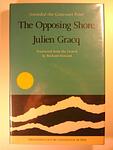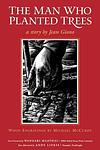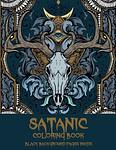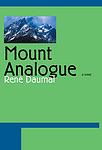The Greatest French "Allegorical, Fiction" Books Since 1950
Click to learn how this list is calculated.
This list represents a comprehensive and trusted collection of the greatest books. Developed through a specialized algorithm, it brings together 286 'best of' book lists to form a definitive guide to the world's most acclaimed books. For those interested in how these books are chosen, additional details can be found on the rankings page.
Genres
Allegorical books are a genre of literature that use symbolic characters, events, and settings to convey a deeper meaning or message. These stories often have a moral or philosophical lesson that is meant to be interpreted by the reader. Allegories can be found in many different types of literature, including novels, short stories, and poetry. They are a powerful tool for exploring complex ideas and emotions, and can be used to comment on social, political, or religious issues. Overall, allegorical books are a thought-provoking and engaging genre that challenges readers to think critically and reflect on the world around them.
Countries
Date Range
Reading Statistics
Click the button below to see how many of these books you've read!
Download
If you're interested in downloading this list as a CSV file for use in a spreadsheet application, you can easily do so by clicking the button below. Please note that to ensure a manageable file size and faster download, the CSV will include details for only the first 500 books.
Download-
1. The Fall by Albert Camus
The novel is narrated by a successful Parisian lawyer who has moved to Amsterdam after a crisis of conscience. He confesses his past misdeeds and moral failings to a stranger in a bar, revealing his growing self-loathing and disillusionment with the hypocrisy and shallowness of his former life. His confessions are a reflection on guilt, innocence, and the nature of human existence. The protagonist's fall from grace serves as a critique of modern society's moral failings and the individual's struggle with guilt and redemption.
-
2. The Opposing Shore by Julien Gracq
The book is a captivating tale of a young military officer who is posted to a remote coastal fortress in an imaginary Mediterranean country. As he awaits a long-anticipated enemy invasion, he finds himself drawn into the local customs and intrigued by the enigmatic presence of the enemy on the opposing shore. The narrative delves into themes of waiting, the passage of time, and the psychological impact of imagined threats, all set against a backdrop of political and military tension.
-
3. Le Pauvre Christ De Bomba by Mongo Beti
"Le Pauvre Christ De Bomba" is a satirical novel set in colonial Cameroon, highlighting the cultural clash between the indigenous people and the French colonizers. The story follows the life of a young boy named Christophe, who is sent to a Catholic mission school and becomes the subject of ridicule due to his poverty and African heritage. Through Christophe's experiences, the author exposes the hypocrisy and injustices of the colonial system, shedding light on the destructive effects of colonization on African society.
-
4. La Vie Et Demie by Sony Labou Tansi
"La Vie Et Demie" is a thought-provoking novel set in an unnamed African country, where an oppressive regime has seized power and implemented a bizarre policy of dividing its citizens into "halves" and "wholes." The story follows the life of a young girl named Sophie, who is born as a "half" and faces discrimination and hardship due to her status. Through Sophie's experiences, the author explores themes of identity, inequality, and the dehumanizing effects of totalitarianism, offering a powerful critique of social and political systems.
-
5. The Man Who Planted Trees by Jean Giono
The book tells the inspiring tale of a solitary shepherd who, through his unwavering commitment to reforest a desolate valley in the foothills of the Alps in Provence throughout the first half of the 20th century, transforms the landscape and, in turn, the lives of the people who come to inhabit the region. With great patience and persistence, he plants one hundred acorns a day for over thirty years, ultimately creating a lush forest that revitalizes the land and offers a powerful testament to the impact one person's efforts can have on the world around them.
-
6. Heartsnatcher by Boris Vian
The novel is a surreal and satirical tale set in a bizarre town where the eccentric inhabitants live under the oppressive rule of a despotic and whimsical figure. The narrative follows the lives of the townspeople, who are subjected to absurd and often cruel whims that challenge their sanity and morality. As the story unfolds, the characters confront the absurdity of existence, the nature of love and desire, and the struggle for individual freedom against authoritarian control. The book combines elements of fantasy, dark humor, and existential philosophy, creating a unique and thought-provoking exploration of human nature and society.
-
7. The Blue Flowers by Raymond Queneau
The novel is a playful and complex narrative that intertwines the stories of two characters living centuries apart: the medieval Duke of Auge as he goes on various adventures, and a modern-day Frenchman named Cidrolin who spends his days idly lounging on a barge moored on the Seine. The narrative switches back and forth between the two timelines with each chapter, employing a variety of literary styles and linguistic puns. The book is known for its experimental use of language, its humorous take on historical and contemporary life, and its exploration of themes such as time, identity, and the cyclical nature of existence.
-
8. Amédée by Eugène Ionesco
The play revolves around the bizarre situation of a couple living with the growing corpse of the husband's friend, Amédée, in their apartment. As the body inexplicably continues to expand, it causes increasing inconvenience and absurdity in their lives. The husband, a failed playwright, and his wife struggle with their mundane existence, their inability to dispose of the corpse, and the surreal events that unfold. The narrative explores themes of stagnation, guilt, and the absurdity of life, as the couple's surreal predicament serves as a metaphor for the inescapable, often grotesque, complexities of the human condition.
-
9. The Baphomet by Pierre Klossowski
"The Baphomet" is a philosophical novel that delves into the esoteric and mystical aspects of the Knights Templar, exploring themes of transgression, heresy, and the nature of divine presence. The narrative is structured around a series of ritualistic encounters and dialogues among the Templars, who have achieved a form of immortality. The characters engage in complex discussions on the dissolution of individual identity, the fluidity of gender, and the quest for spiritual transcendence. The book blends historical elements with surreal and symbolic imagery, challenging the reader to consider the boundaries of desire, knowledge, and the sacred.
-
10. The Lesson by Eugène Ionesco
"The Lesson" is a darkly comedic one-act play that explores themes of power, absurdity, and education. It revolves around a Professor who tutors a young, enthusiastic Pupil in preparation for a totalizing examination. As the lesson progresses, the initially benign academic session descends into a surreal and oppressive ordeal. The Professor's pedantic instruction becomes increasingly authoritarian and nonsensical, leading to a climax that exposes the dangers of indoctrination and the grotesque potential of authority figures to abuse their power. The play is a poignant critique of totalitarian systems and the absurdities inherent in dogmatic approaches to knowledge and learning.
-
11. Mount Analogue by René Daumal
The book is a novel that combines surreal adventure with philosophical inquiry, telling the story of an expedition to a mysterious, inaccessible mountain that represents a spiritual quest. The mountain, which connects Earth to Heaven, can only be perceived by those who have refined their inner vision. The narrative follows the explorers as they embark on their journey, facing various challenges and revelations that mirror the inner landscapes of human consciousness and the pursuit of enlightenment. As the climbers ascend, the novel delves into themes of reality, symbolism, and the pursuit of the absolute, ultimately leaving the reader with a contemplation of the unattainable peak of human knowledge and experience.
Reading Statistics
Click the button below to see how many of these books you've read!
Download
If you're interested in downloading this list as a CSV file for use in a spreadsheet application, you can easily do so by clicking the button below. Please note that to ensure a manageable file size and faster download, the CSV will include details for only the first 500 books.
Download







